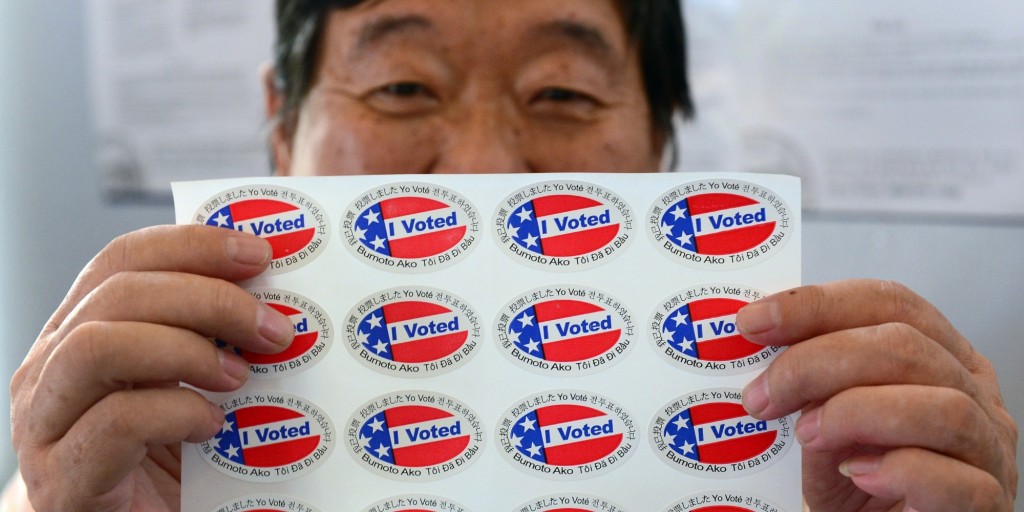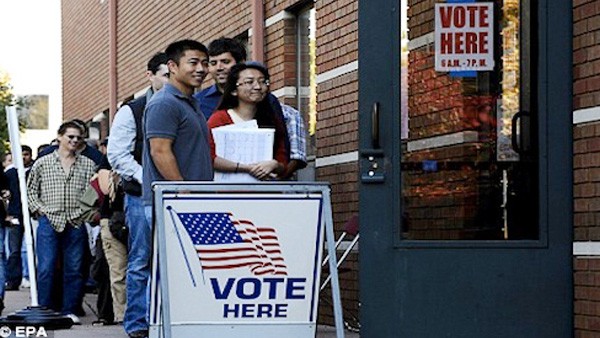It’s that time again – today is Election Day, and the stakes couldn’t be higher. AAPI aren’t traditionally viewed as a significant coalition of voters; yet nothing could be further from the truth. Voting is, in fact, an essential component of American citizenship and a right that all AAPI voters should exercise today and on all Election Days.
Here are the top 10 reasons why you should head to the polls today, if you haven’t already.
1. You should vote today because your vote is important: AAPI are one of the fastest growing voter blocs in the country.
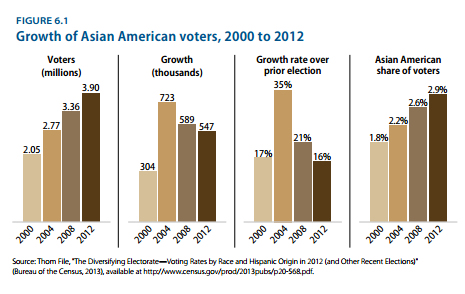
The AAPI population grew by about 3% between 2012 and 2013 and has increased by more than half since 2000; thus, our community is one of the fastest growing racial groups in the country. Consistent with our rapid growth rate, the number of AAPI registered voters has grown steadily by about half a million every year, and we now represent about 3% of all registered voters. Some studies suggest that at this rate of growth, AAPI voters stand to represent 5% of national voters by 2025 and 10% of voters by 2044. However, given our geographic distribution — we are concentrated in certain key states such as California, New Jersey, New York, and Texas — the influence of AAPI voters is actually much higher than these numbers might suggest. In California, for example, there are already 1.7 million AAPI registered voters, or nearly 10% of all registered voters in the state.
2. You should vote today because voting is a hard-won right for AAPI (and other minorities).
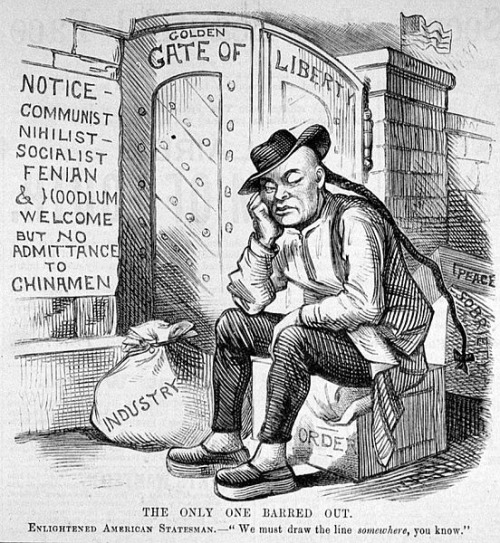
The democratic vote is a central institution for the United States, and the popular vote has been perceived as a powerful symbol of both the right and the responsibility of the American citizen. Yet, at the birth of this country, the right to vote was initially limited predominantly to land-owning White men. It took until 1920 for the women’s suffrage movement to earn the right to vote for women voters.
Meanwhile, the right for AAPI and other minorities was more historically fraught. For much of our history, AAPIs were denied eligibility to American citizenship — and with it the right to vote as would otherwise be granted to naturalized citizens by the 14th Amendment (ratified in 1868). In 1870, Asians were excluded from the Naturalization Act that granted naturalization rights to people of African descent. Subsequent legislation reinforced the ineligibility of many foreign-born Asians — termed “Mongolians” or “Mongoloids” — for naturalized citizenship. Instead our status as “aliens ineligible for citizenship” was used as the basis for further discriminatory laws, up to and including Chinese Exclusion and Japanese internment.
The right to vote for AAPIs is directly linked to our decades-long fight for the right to American citizenship. In 1898, Wong Kim Ark was forced to bring his case to the Supreme Court to establish that he and other non-White US-born minorities were American citizens by the principle of jus soli, a right that remains into today. Foreign-born Asians won the right to naturalized citizenship rights piecemeal: Chinese earned naturalization rights in 1943 with the passage of the Magnuson Act, while it took nearly another five years for the Filipino Naturalization Act to grant the same naturalization rights to Filipinos and ten years for the McCarren-Walter Immigration and Naturalization Act to grant naturalization to Japanese immigrants.
With foreign-born AAPI still representing more than two-thirds of AAPI voters, most AAPI voters are enjoying a right to naturalize as citizens with voting access, a right that is only about sixty years old for most of our community. There are still AAPIs alive today who remember a time when they were denied the right to naturalize and vote.
3. You should vote today because even in 2014 not all AAPI voters get a chance to be heard.
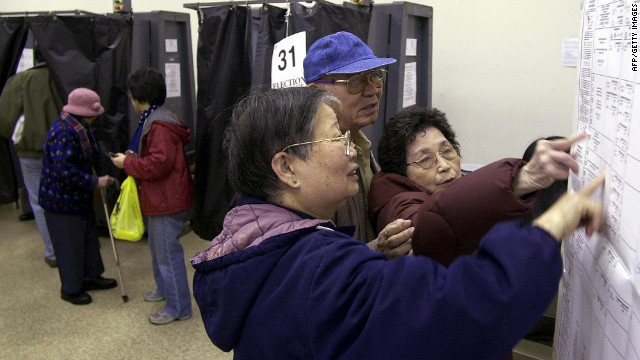
Even with citizenship rights, restrictive voter laws have effectively disenfranchised voters around the country, disproportionately impacting voters of colour. Throughout much of the twentieth century, voter literacy tests largely prevented African American voters from exercising their voting rights. These unfair laws were banned by the landmark 1965 Voting Rights Act.
Today, a myriad of restrictive voting laws have become the new substitute for Jim Crow literacy tests. 30 states have passed confusing voter ID laws that disproportionately impact low-income and minority voters; the ACLU estimates that nearly 21 million Americans lack a current government-issue ID card, and many face prohibitive obstacles towards obtaining that ID. 18MillionRising documents an ongoing case in Georgia where over 40,000 newly registered voters — many of them Black, Asian and Latino — have found their names have simply vanished from state voter rolls.
For AAPI, a new form of informal voter literacy test disenfranchises our community. 35% of Asian Americans are limited English speakers, and who are highly dependent on Asian language assistance at the polls. The 1965 Voting Rights Act protects “limited English proficiency” voters by providing in-language ballots at polling places situated in concentrations of non-native English speaking voters.
However, the Asian American Justice Center reports that the Department of Justice receives hundreds of complaints regarding language-access violations at the polls on Election Day every year, including many complaints that are associated with the likely disenfranchisement of AAPI voters.
So, as an AAPI voter, you need to exercise your right to vote because laws still exist that deny others in our community the ability to exercise that right.
4. You should vote today because lots of AAPIs care about politics and you should too.
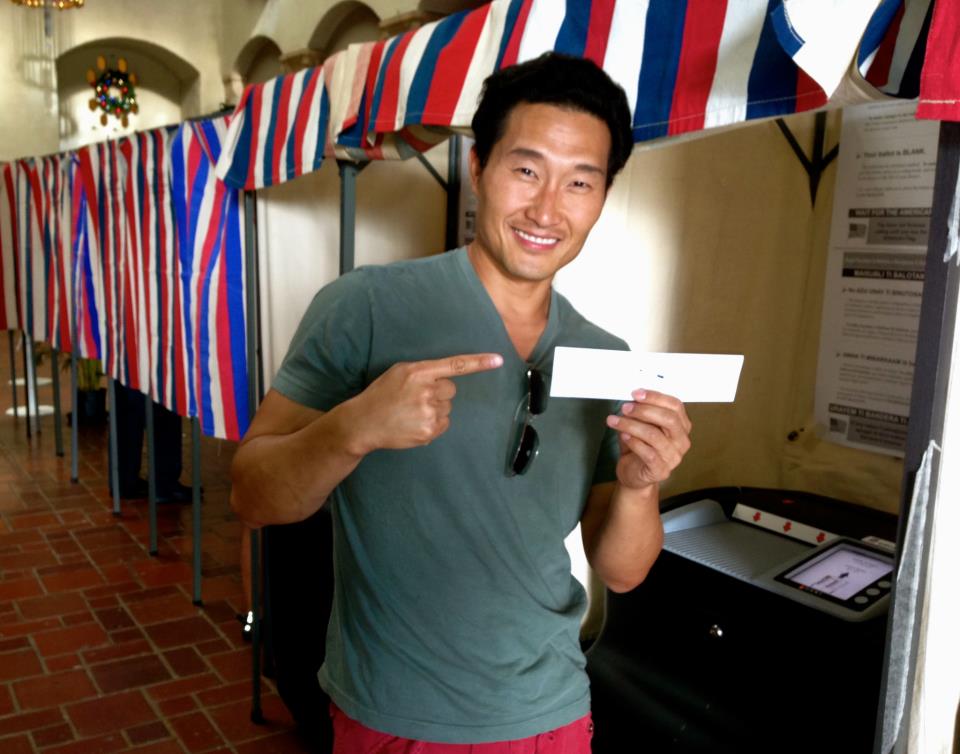
Despite obstacles that AAPI voters face at the polls, the AAPI community is highly politically engaged. A recent joint study between AAPI Data and the Center for American Progress reported that 20% of AAPI engage in some form of community activism, 13% contribute funds to political campaigns, and 3% volunteer their time to campaign work. While these numbers are on the low-end relative to other racial groups — Black Americans, for example, donate a great deal of their time to campaign work and community activism — these numbers also dispute the prevailing myth that AAPI are politically apathetic or unengaged.
5. You should vote today because your vote matters: AAPI helped elect President Obama and have been influential in other major races.
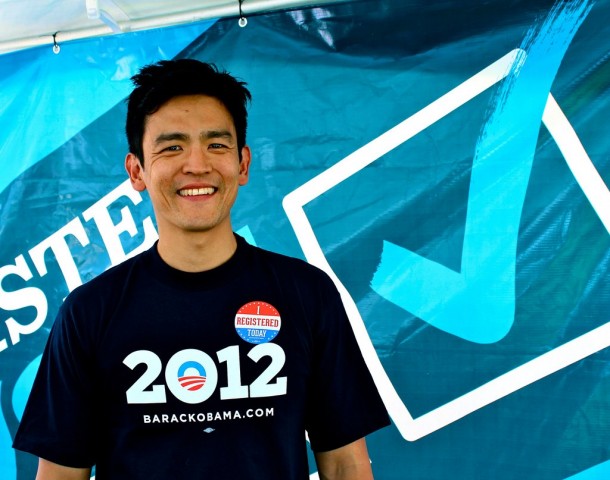
In 2008, AAPI voters voted overwhelmingly in support of President Barack Obama, and helped deliver several key AAPI-populated states to his column. We repeated that pattern in 2012; other races in 2012 were also impacted by AAPI voter turnout. With AAPI voters representing an ever-increasing segment of the voting population, our voice will resonate now more than ever at the polls. Increasingly, the AAPI vote has become an influential swing vote for local and national candidates; one that they can increasingly ill-afford to ignore.
6. You should vote today because your vote is silenced when you don’t turn out.
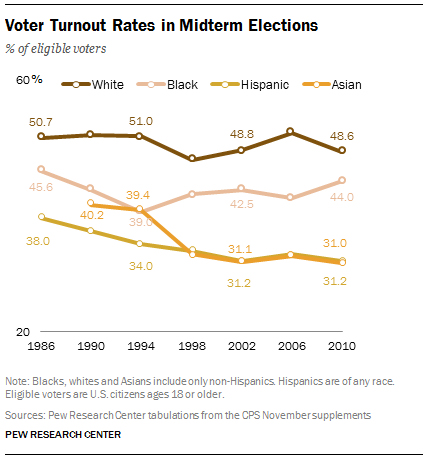
AAPI voter turnout rates are relatively low, although this is largely a reflection of barriers towards voter registration.
However, choosing not to vote is equivalent to choosing to not be seen as a voter.
Change in this country comes from political participation and engagement; when AAPIs vote, we declare that we will no longer tolerate a political process that effectively ignores our very existence.
7. You should vote today because the AAPI vote is really up-for-grabs, and the major political parties know it.
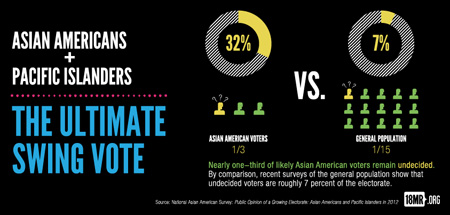
In contrast to most racial or ethnic groups, AAPI voters are largely up-for-grabs, politically. In a recent NAAS survey conducted in conjunction with the Asian American Justice Center, a majority of AAPI who chose to declare a party affiliation identified themselves as Democrats; however, more than 50% of interviewed AAPI either identified as Independents or said they were unaffiliated or didn’t know which party to affiliate with. These data strongly suggest that AAPI voters are an up-for-grabs voting bloc, which represents political influence with this country’s two major political parties… but only so long as we also prove our community is a consistent and reliable voting bloc.
8. You should vote today because both Democrats and Republicans want your vote, and they want it bad (although some of them just don’t know how to get it).

The recent NAAS survey reports that, in contrast to most other voters, AAPI voters are largely ignored by candidates of either political party: only about 30% of AAPI voters are contacted by either a Democrat or a Republican through conventional voter outreach means, roughly 10% less than Black, White or Latino voters. Yet, in certain areas, candidates are waking up to the influence of the AAPI vote. A recent Politico article discussed how Virginia’s Congressional candidates have been strongly lobbying the state’s AAPI voters. They write:
Fairfax is only one of a lengthening list of urban and suburban battlegrounds – from northern New Jersey to the greater Atlanta area, to the streets of Minneapolis and Las Vegas and up and down the West Coast – where the two national parties have focused with new intensity this year on wooing this expansive and diverse immigrant population.
Spurred by President Barack Obama’s landslide victory among Asian-American voters in 2012 and new government data showing Asians outstripping Latinos as the fastest-growing immigrant population, prominent elected officials on both sides of the aisle have called for a stepped-up focus on Americans of Asian descent.
Texas Sen. John Cornyn, whose campaign has run TV ads in Vietnamese and offers versions of its website in Mandarin and Hindi, called it essential that the GOP start “showing up” before these communities’ distrust of Republicans gets cemented in place.
Of course, not everyone in the country’s major political party leadership gets it. Earlier this year, the Republican Party got egg on its face after the Party’s Asian Coalition — a national effort to engage in outreach to the AAPI electorate — was revealed to be populated largely by White men and their overseas Asian businsess partners. The Coalition endorsed five candidates, only one of which was Asian American, and justified their decision by explaining that their interpretation of AAPI voter outreach involved expanding the definition of an AAPI to include pretty much anybody:
“We have a very broad definition of what constitutes the Asian American community,” the group’s vice chairman, Thomas Britt, told Vice. “The Asian Republican Coalition is open to all Americans, including Asian Americans and those of us like me who are not ethnically Asian but have spent 20 years living in Hong Kong.”
9. You should vote today because in several key elections, we could have an historic AAPI first.

AAPIs remain woefully underrepresented in the highest echelons of this nation’s political structure: only one US senator, and only 10 representatives in the House, is Asian American. Yet this year also marks a historic first in the sheer number of Asian American candidates running for local and state-wide office. Report NBC:
The November election will include 22 Asian-American congressional candidates in 12 different states and territories; 39 ran in the primaries. In the 2008 elections, only 13 Asian-American candidates ran for Congress.
Rhode Island could also see its first Asian American governor if Republican Allan Fung — the state’s first Asian American to hold the office of mayor — is elected as the governor. And, over in California’s 17th District, Ro Khanna (who is a Democrat and is South Asian American) seeks to oust entrenched Asian American politician Mike Honda who has served as a Representative in the House for 13 years; a high-profile nail-biter of a race between two qualified AAPI candidates has the wonk in me titillated.
10. You should vote today because whatever happens at the end of tonight’s Election Night will be incredibly important in shaping the upcoming two years.
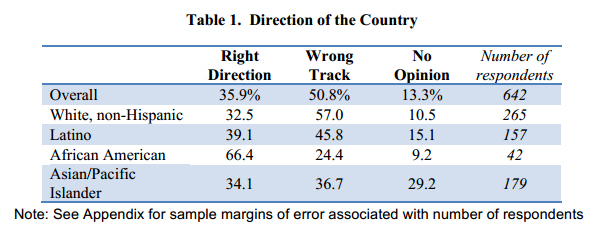
It’s just a midterm election, right? Wrong! What happens today could be absurdly important for the coming few years, particularly when it comes to the issues that AAPI voters have identified as being important: the economy & jobs, education, healthcare, social security, national security and immigration all rank as major issues for AAPI voters.
Tonight, Democrats and Republicans are in an edge-of-your-seat war to win control of the Senate, and whoever comes out on top will wield major influence in all of these issues, which are slated to come up in the next two years. Comprehensive immigration reform remains one of the final issues on the Obama 8-year agenda, and although most agree that an overhaul of the nation’s immigration policies is dead in the water, ongoing more modest reforms are likely to appear in the coming two years as part of a larger effort to lobby immigrant Asian and Latino voters. In California and New York, race-conscious affirmative action is likely to reappear as a state-wide issue in the coming years, and the makeup of the state legislature will largely decide the outcome of these debates. Who your representatives are in your respective state legislature and in Washington will decide what happens in issues ranging from the abortion debate to the renewed War on Terror.
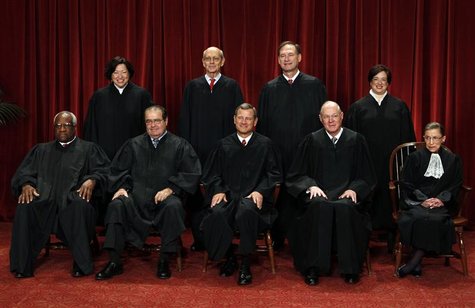
And, above all, our representatives in Washington will in the next two years very likely be making a critical decision: they will very likely decide the next justice of the Supreme Court of the United States. SCOTUS has a very delicate balance of power between right- and left-leaning justices, and they’ve handed down a long list of influential decisions in the past ten years. Whom do you want sitting in this life-long position? Your vote today will be your one chance to be heard on this and so many other issues.
You should vote today because your voice matters.
Your vote takes just minutes to cast, but will decide the country’s direction of the next two years. Please, take some time this evening to be heard.
Find your polling place here, and know your rights as a voter by checking your specific state’s voting laws. If you experience any issues at the polls, contact 1-888- API-VOTE to get in touch with the AAJC voter protection hotline.
Have you already voted? Post here to receive my digital fist-bump.
